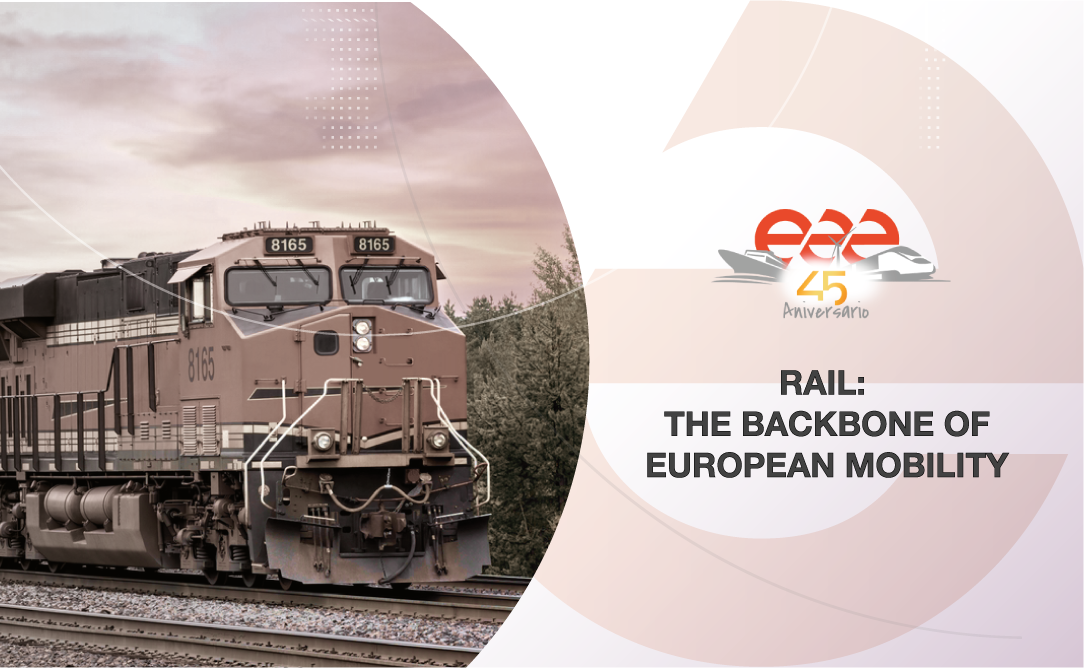Rail plays an essential role in modern transport in Europe. Not only does it provide a sustainable and efficient alternative, but it also connects territories, drives economic development and improves the quality of life of the people who use it. Its importance goes far beyond being a means of transport: it is a key tool for tackling the continent’s environmental, social and economic challenges.
Transport is one of the biggest contributors to CO₂ emissions in Europe, and rail is an effective solution. With a significantly low carbon footprint, trains emit up to 80% less greenhouse gases per passenger or tonne transported compared to private cars and trucks. Furthermore, the move towards electrification and the use of renewable energy reinforces their role in the fight against climate change, aligning with the European Green Pact and its ambitious emission reduction targets.
But rail’s impact is not limited to the environment. Its ability to connect urban and rural regions fosters trade, tourism and access to job opportunities. Trans-European rail corridors have proven to be a key tool for strengthening cohesion between countries and bringing European citizens closer together, promoting accessible and efficient transport.
European mobility strategy beyond the environment
Moreover, on a social and economic level, the rail sector generates employment, stimulates technological innovation and ensures inclusive mobility. Thanks to high-speed trains and advanced signalling systems, rail continues to evolve to offer a faster, safer and more sustainable service.
Indeed, the railway is not only a means of transport. It is also an engine of transformation. And, in this sense, companies like Triple E contribute to this transformation. Thanks to our advanced solutions in safety, digitalisation and sustainability, Triple E promotes the development of more efficient and reliable railway systems to meet the demanding standards of European mobility.










